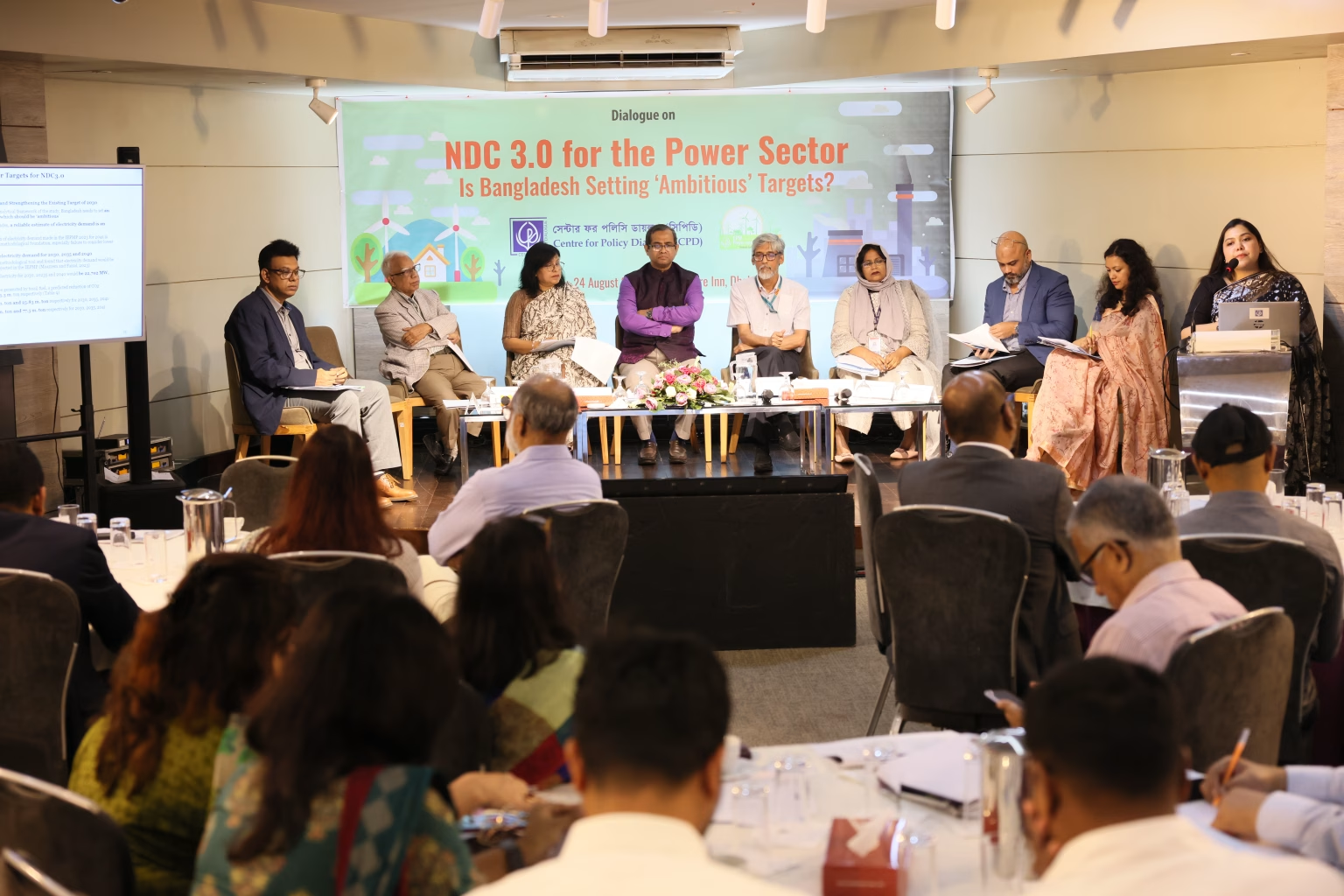To achieve the target of 30% renewable energy production by 2040, Bangladesh will require an investment of $35.2 to $42.6 billion, according to the private research organisation Centre for Policy Dialogue (CPD). However, the organisation warned that achieving this goal faces challenges due to planning inconsistencies, reliance on fossil fuels, and investment uncertainties.
This information was shared at a discussion titled “NDC 3.0: Future Targets” held on Sunday at the BRAC Centre in Mohakhali, Dhaka.
Two research papers were presented at the event. CPD Research Associate Mehedi Hasan Shamin presented a paper on “Progress in Implementing NDC 2.0” while Helen Mashiat Priyoti presented another paper analysing the optimal energy mix and necessary investments to meet climate targets by 2040. CPD’s research highlighted that failing to harness the potential of renewable energy will make it difficult to achieve climate adaptation and emission reduction goals.
CPD’s study indicates that due to inconsistencies in the government’s power and energy plans and high dependence on fossil fuels, policymakers must adopt clearer and more effective measures to reduce carbon emissions.
Former BPPA President Imran Karim stated, “Currently, renewable energy accounts for only 2% of electricity production. To increase this to 20% by 2030, an investment of $12 to $24 billion will be required.”
On this topic, European Union Program Manager Tanzina Dilshad remarked, “NDCs must be updated every five years. Today’s research will aid in that process. Entering the carbon credit market will create new investment opportunities.”
CPD Research Director Dr Khondaker Golam Moazzem said, “If policy ambiguity and reliance on fossil fuels persist, financial and climate crises will deepen. Now is the time for bold decisions.”
According to CPD’s recommendations, to achieve the 30% renewable energy target by 2040, the government must align all national plans. Additionally, it suggested encouraging renewable energy imports and cross-border investments from neighboring countries like Nepal, Bhutan, and India.
The recommendations also emphasised ensuring low-interest financing with support from multilateral development banks and global climate funds, investing in grid infrastructure and energy storage technology, and expanding rooftop solar and mini-grid projects.


